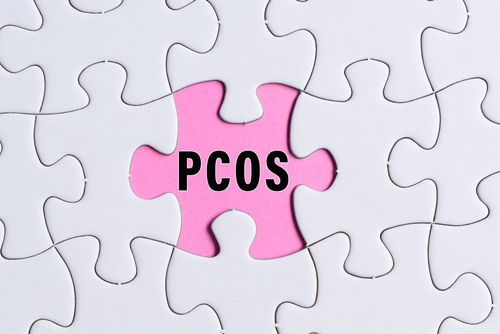Reproductive Hormones Are Linked to PCOS

When hormones go awry, it can lead to weight gain and various other health problems. Reversing hormonal weight gain is possible by maintaining a healthy lifestyle, regular exercise, sufficient sleep, stress management, or even replacement strategies.
It is crucial to address and treat the underlying causes of hormonal imbalances. Hormones play a crucial role in regulating bodily functions, and good function involves the hypothalamus and your pituitary gland.
Even small amounts of hormones can have significant effects. Protein hormones quickly react with cell surface receptors, triggering events. Steroid hormones, on the other hand, react with receptors inside the cell, leading to a slower response. There are organs like the stomach, intestines, and heart that produce hormones, but their main function is not hormone secretion. Your ovaries or testes also play multiple roles, including sex hormone production release.
Hormones Affect Long-Term Weight Control
A hormone test can measures factors related to weight loss and control. It can help identify imbalances in thyroid, reproductive, and stress hormones, thus impacting weight control. Discussed below are common culprits, such as:
Testosterone: Women with high testosterone levels may experience signs of virilization, such as muscle growth, increased body hair, and a deepening voice. Some women may also experience frontal balding due to increased production.
Progesterone: In addition to reproductive functions, progesterone acts as a natural anti-inflammatory and helps your brain receive leptin hormone, which is crucial in regulating appetite.
Estrogen: Making good lifestyle choices is key to maintaining estrogen balance. This includes eating a balanced diet, engaging in regular exercise, getting enough sleep, and doing a better job in managing daily stress.
Insulin: Pre-diabetes and insulin resistance often precede the development of Type 2 diabetes. These conditions result in higher glucose levels in the bloodstream due to decreased sensitivity to insulin. Lifestyle changes early on can help restore insulin balance.
Cortisol: It's crucial to keep cortisol under control as it affects almost every part of your body. High cortisol levels over time can lead to weight problems, difficulty sleeping, migraines, heart problems, anxiety, and irritability. Managing cortisol release can be achieved through improving your lifestyle.
Thyroid Hormone: If lab results suggest you are suffering with low levels of thyroid hormone, you may need medication to help restore hormonal balance. However, it's important to note that thyroid medication alone will not cause instant weight loss. It takes time for your body to the medication to take effect and restore balance.
When your hormones are out of whack, you may experience vague symptoms that are hard to pinpoint. You might just feel "off" without really knowing why. Unexpected weight gain may be accompanied by other symptoms like headaches, insomnia, mood swings, and heavy or painful periods. If you're gaining weight, an at-home hormone test kit can help identify imbalances.
Women with PMS consume 275% more refined sugar than those without, so a diet high in sugar can disrupt reproductive hormones and potentially explain the connection between conditions like polycystic ovary syndrome (PCOS). If you are experience unexpected weight gain or other worsening symptoms, contact MRC for a quick and easy Hormone Test Kit.
By submitting this form, you agree to receive marketing text messages from us at the number provided, including messages sent by autodialer. Consent is not a condition of any purchase. Message and data rates may apply. Message frequency varies. Reply HELP for help or STOP to cancel. View our Privacy Policy and Terms of Service.

